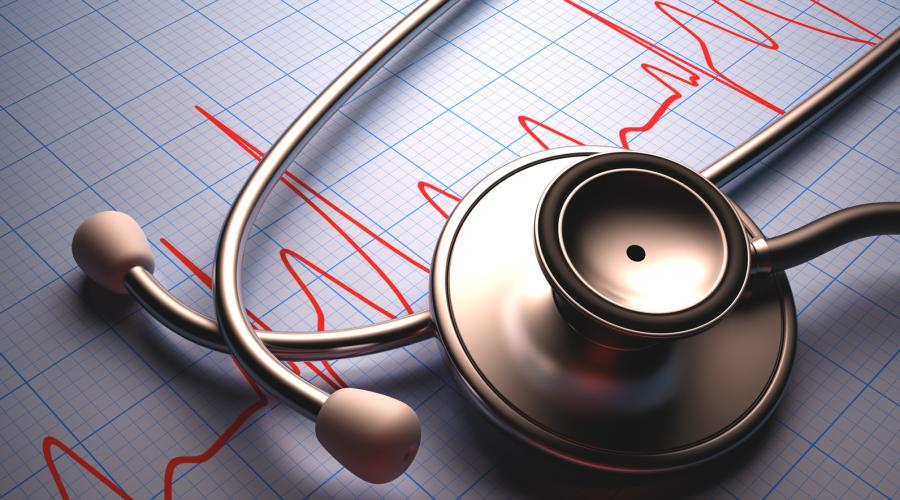
As we get older, it’s increasingly important that we undergo regular heart screening tests. These tests provide basic facts that your doctor uses to evaluate and monitor your cardiovascular health. The goal of regular heart screenings is to detect any cardiac disease or condition at its earliest and most treatable stage.
Even if going to the doctor isn’t your idea of a good time, doing so for regular heart screenings is definitely time well spent. Read on to discover the five reasons why heart screenings are important.
1. Stress takes a toll on your heart
Stress can play a leading role in our everyday lives, affecting everything from our relationships, emotions and behavior to our sleep, overall wellbeing — and even our organs.
One of the ways your body responds to stress is by releasing hormones that make your heart beat faster and blood vessels constrict (become narrower), raising your blood pressure. Constant (chronic) stress makes your heart work too hard for too long. And when your blood pressure rises, so do your risks for having a stroke or heart attack [1].
Heart screening tests are important, especially for stressed-out individuals, because they help monitor how your heart is doing and motivate you to find ways to reduce your stress
2. Some cardiac conditions are asymptomatic
Another reason why heart screenings are important is because certain conditions, like high blood pressure and high cholesterol, might not show symptoms (are asymptomatic), so you won’t necessarily know that you have them without being tested!
These conditions can cause catastrophic results — even more so for older individuals — which is why it’s crucial you get regular heart screenings to monitor (and hopefully lower) these numbers.
3. Lower your risk of heart disease
Getting regular heart screenings is important because heart disease can actually be improved — and even prevented — by making lifestyle changes. But how would you know you need to make changes if you didn’t know you were at risk for heart disease?
That’s where heart screening tests come in. The best way to prevent heart disease is by understanding, monitoring, and managing your risk factors, which can be as simple as getting an annual checkup [2]! At your heart screening appointment, you’ll learn important information, like:
-
- Whether or not you have any risk-factors for heart disease
- Your current state of heart health, which is a combination of your “critical numbers” [3]:
- Body mass index (BMI)
- Cholesterol
- Blood pressure
- Blood glucose (sugar) level
- Immediate steps to take to lower your risk of heart disease
4. Knowledge is power
Regular heart screenings are important because they arm you with valuable information that can help determine if you need to make lifestyle modifications and empower you to take steps today toward a better, heart-healthier tomorrow.
Early detection and treatment of heart disease can set the stage for a lifetime of better heart health. And knowing where your numbers stand early on makes it easier to spot a possible change in the future.
5. Help control (and even prevent) diabetes
Lastly, heart screenings are important because these tests can alert physicians at the first sign of prediabetes or diabetes, ideally giving enough time to course-correct.
There actually aren’t any symptoms of prediabetes, and type 2 diabetes can become severe (and dangerous) without any external warning signs. Unfortunately, diabetes and heart disease tend to go hand-in-hand; left untreated, diabetes can lead to heart disease and even stroke.
That’s why monitoring your critical numbers at regular screenings is key! For pre-diabetics, making immediate lifestyle changes could halt the progression of the disease. And for pre- and type-2 diabetics, regularly and carefully monitoring these critical numbers is the first step in controlling the disease and improving your quality of health [4].
Preventing heart disease means making smart choices now that will pay off the rest of your life [5]. Now that you know why it’s important to undergo regular heart screening tests, give your primary care doctor a call and take control of your heart health!
Looking for more ways to improve your heart health? Start today by checking out our Heart Health Resolutions Checklist
References:
[1]
https://www.stress.org/stress-effects#body
[2]
https://www.beaumont.org/health-wellness/blogs/heart-screenings-why-and-when-you-need-them
[3]
https://www.heart.org/en/health-topics/consumer-healthcare/what-is-cardiovascular-disease/heart-health-screenings
[4]
https://www.heart.org/en/health-topics/diabetes/prevention--treatment-of-diabetes/know-your-health-numbers
[5]
https://www.heart.org/en/healthy-living/healthy-lifestyle/how-to-help-prevent-heart-disease-at-any-age












